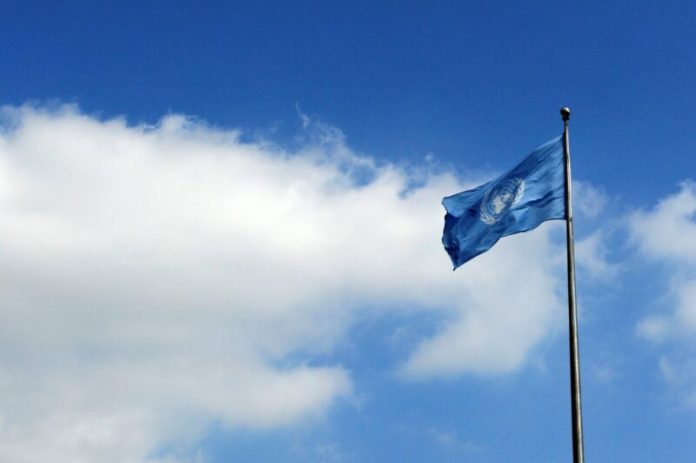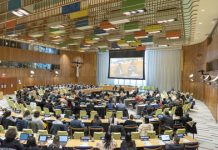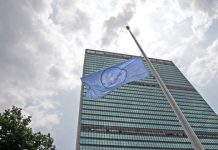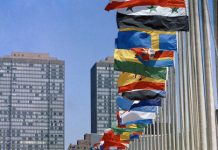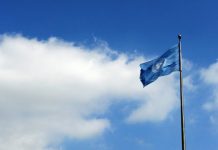Afghanistan quake: Rescuers arrive on foot, survivors need everything
The massive assistance mission for earthquake survivors continued in Afghanistan on Wednesday as aid teams tackled blocked roads and downed communications lines in a bid to reach the most remote communities still in need of help.
Latest updates from UN teams who reached affected communities in mountainous Ghazi Abad district on foot underscored the urgent need to press on with the humanitarian response.
The immediate focus is on finding and helping survivors, but funding shortages have fuelled concerns that lifesaving relief work may soon be curtailed.
Here’s John Aylieff, Country Director in Afghanistan for the UN World Food Programme – or WFP:
“WFP can only afford to feed earthquake victims for a few more weeks before funding runs out; this is not long enough to cater to their immediate needs nor to put them on a path to rebuilding their lives. We need donors to step in urgently and help us support families which have been devastated by this tragedy.”
The UN Children’s Fund, UNICEF, noted that staff had to abandon their cars and walk two hours to reach some hillside communities, while other villages further away have still not been reached, even by helicopter.
According to the country’s de facto authorities, more than 1,400 people died in the disaster and over 3,000 people were injured; at least 5,000 homes were destroyed.
Gaza: desperate aid-seekers killed every day trying to get food
To Gaza, where people seeking food continue to be killed and injured every day amid ongoing Israeli military operations, the UN aid coordination office, OCHA, said on Wednesday.
In an update, the UN agency said that civilians continue to be killed and injured by military forces, or when violence “erupts among desperate crowds…trying to access aid”.
Locations of killings have included the militarized zone near checkpoints waiting for aid convoys and at non-UN militarized distribution sites.
OCHA stressed that although regular food cargo deliveries from Gaza’s crossings resumed on 20 July, less than half of the 2,000 tonnes of food needed daily to meet people’s basic needs have been allowed into the Strip.
And despite repeated requests, cooking gas has not entered Gaza for more than five months. It is no longer available in markets, while firewood has become increasingly unaffordable.
“Many people are reduced to using waste and scrap wood as alternative cooking sources,” OCHA noted.
Funding cuts do have an impact on Human Rights Council, says President
The Human Rights Council is set to meet on Monday; it’s a chance for UN Member States to discuss action to address conflicts around the world, as well as other topics that affect us all, from climate change to disability rights.
Important as this work is, it’s feared that cost-cutting measures that are already affecting UN agencies and bodies like the Council could limit its reach, said President Jürg Lauber.
This includes independent rights investigators known as Special Rapporteurs, Mr. Lauber told journalists in Geneva:
“When the Council decides to have an investigative mechanism or a special rapporteur or an issue, they need resources. They need they get support from the Secretariat to do research, to write reports. They need to travel to a country to see the situation. There, there. There’s also less money available, which means they don’t get necessarily all the research and assistance they need to do their work. They are able to travel maybe once to a country, but not twice. There is a very clear act of this of this financial of the shortage of financial resources on the work of the Council, both in our meetings in the sessions and for the implementation of the mandates that we design.”
Mr. Lauber added that the funding cuts could also prevent people or groups in countries of concern from sharing their testimonies with investigators.
And he noted that reduced funding could also limit how much technical support and advice the Council is able to give to governments seeking to promote and protect human rights.
Daniel Johnson, UN News.
Source of original article: United Nations (news.un.org). Photo credit: UN. The content of this article does not necessarily reflect the views or opinion of Global Diaspora News (www.globaldiasporanews.com).
To submit your press release: (https://www.globaldiasporanews.com/pr).
To advertise on Global Diaspora News: (www.globaldiasporanews.com/ads).
Sign up to Global Diaspora News newsletter (https://www.globaldiasporanews.com/newsletter/) to start receiving updates and opportunities directly in your email inbox for free.


